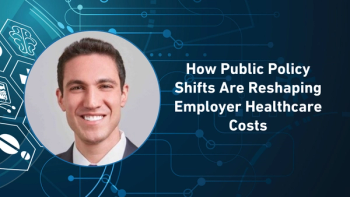- Pharmaceutical Commerce - October 2025
- Volume 20
- Issue 5
Inside the MFN Pricing Actions
Amid pressures on pharma to match the lowest international prices, experts warn of “policy laundering” and discriminatory impact.
The pharmaceutical pricing saga continues to keep us busy, as we observe reactions to President Trump’s most-favored nation (MFN) pricing threats and subsequent actions.
In my previous column,1 I described how a change in the law resulted in discounts exceeding 100% for some drugs, forcing pharma manufacturers to have to give money in addition to free drugs for every patient.
The president, a step further, went on to state he was going to cut drug prices by up to 1,500%. For those among us that are perhaps a bit math-challenged, this means, for example, that for a drug with a list price of $100, the company must then provide the drug for free and, on top of that, pay $1,400. We all know that this often is just the Trump style of communicating, but the real issue is certainly no joke.
Lower your prices, or else
Seventeen Big Pharma companies received letters urging them to lower prices of prescription drugs to the lowest level offered in other developed nations, as per the most-favored nation model. The companies had until Sept. 29 to respond with proposals (Pfizer's deal with the US administration, announced Tuesday, was one such example).
So far, Eli Lilly has announced an intent to increase prices for some drugs; it announced a list price increase for Mounjaro, which will affect only private providers and not the National Health Service, which provides for most patients in the UK. Lilly has also launched a direct-to-consumer platform dubbed LillyDirect that sells certain medicines to cash-paying patients at a discount to their standard list prices. Novo Nordisk has launched a collaboration with GoodRx with a similar goal.
Policy laundering
In a recently published report,2 Barry Appleton, an international trade lawyer at Appleton & Associates, used the term “policy laundering” to describe the ultimatum put on the drugmakers to increase largely government-controlled prices in other countries to avoid MFN-style price controls. This is particularly interesting, as the industry has frequently complained about government-mandated prices in many countries where the Office of the US Trade Representative response has typically been that they can only act where unfair trade practices exist, such as favorable treatment of local companies versus US companies.
Pharma companies have had to face this issue without any US government support. Trump’s aim to increase ex-US prices resonates well with most industry executives, but they would appreciate his support rather than an ultimatum to do the impossible by themselves. Ex-US governments have had a long-standing practice of dictating drug prices and forcing prices down to manage the total drug cost within a budget that is insufficient to address increasing healthcare needs of an aging population.
Treating seniors, the disabled, and terminally ill as having lower value
An interesting angle came from The Wall Street Journal,3 which reported that importation of price controls based on quality-adjusted life years (QALY) criteria (used in the UK, Canada, Sweden, Australia, South Korea, etc.) would be discriminatory against the disabled, as it assigns a lower value to save the life of an elderly, disabled, or terminally ill individual compared to a young and healthy individual.
The introduction of MFN pricing in the US could be seen as an implicit declaration that seniors, disabled, and terminally ill individuals have lower value than other Americans and, as such, in violation of H. R. 485 of Feb. 8, 2024,4 which was introduced by House Republicans to prohibit the use of QALYs for all federal programs.
How about a little help?
Rather than threatening and disabling one of the last very successful US manufacturing industries, in my opinion, the administration should provide more constructive support to try to establish fair global pricing for Rx. It seems to work for NATO funding, although the Russian threat to Europe played a clear role here. Maybe Europe should be more concerned about the next version of COVID, HIV or Ebola to better appreciate life and the industry that has often been saving it.
About the Author
Ed Schoonveld is a value and access advisor for Schoonveld Advisory and author of The Price of Global Health.
References
1. Schoonveld, E. A Rebate Double-Whammy: Exploring the Unintended Consequences. Pharmaceutical Commerce. August 11, 2025.
2. Samorodnitsky, D. Tariffs and MFN Policy Power a Broad, Confusing Pharma War. BioSpace. August 20, 2025.
3. Jacobs, C. Trump’s Drug-Price Plan Would Hurt the Disabled. The Wall Street Journal. August 21, 2025.
4. H.R. 485. US Senate.
Articles in this issue
3 months ago
Staying Current on Cold Chain3 months ago
Surveying the Industry3 months ago
Why Your EHR Messaging Must Be Real-Time3 months ago
Bridging People, Process, and TechnologyNewsletter
Stay ahead in the life sciences industry with Pharmaceutical Commerce, the latest news, trends, and strategies in drug distribution, commercialization, and market access.





